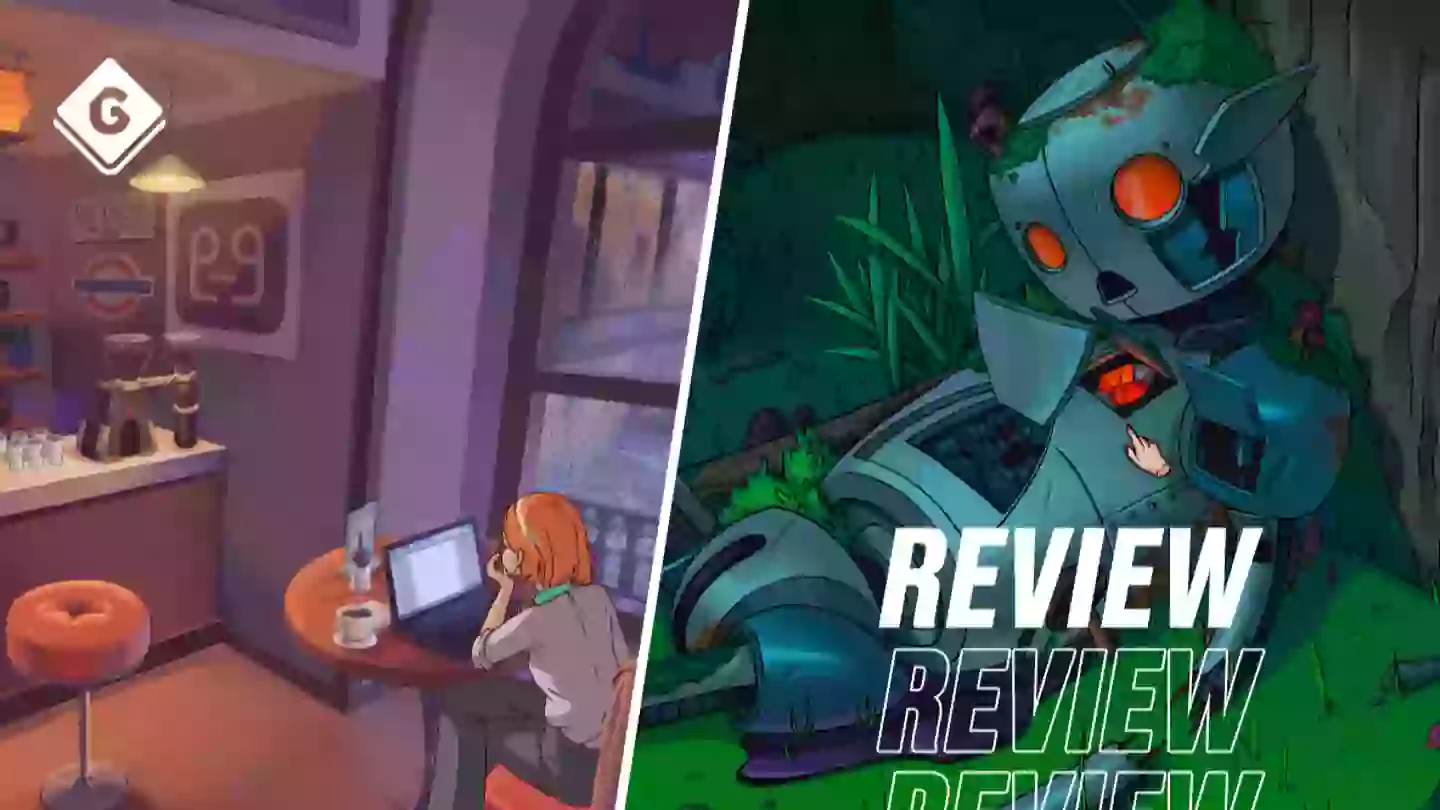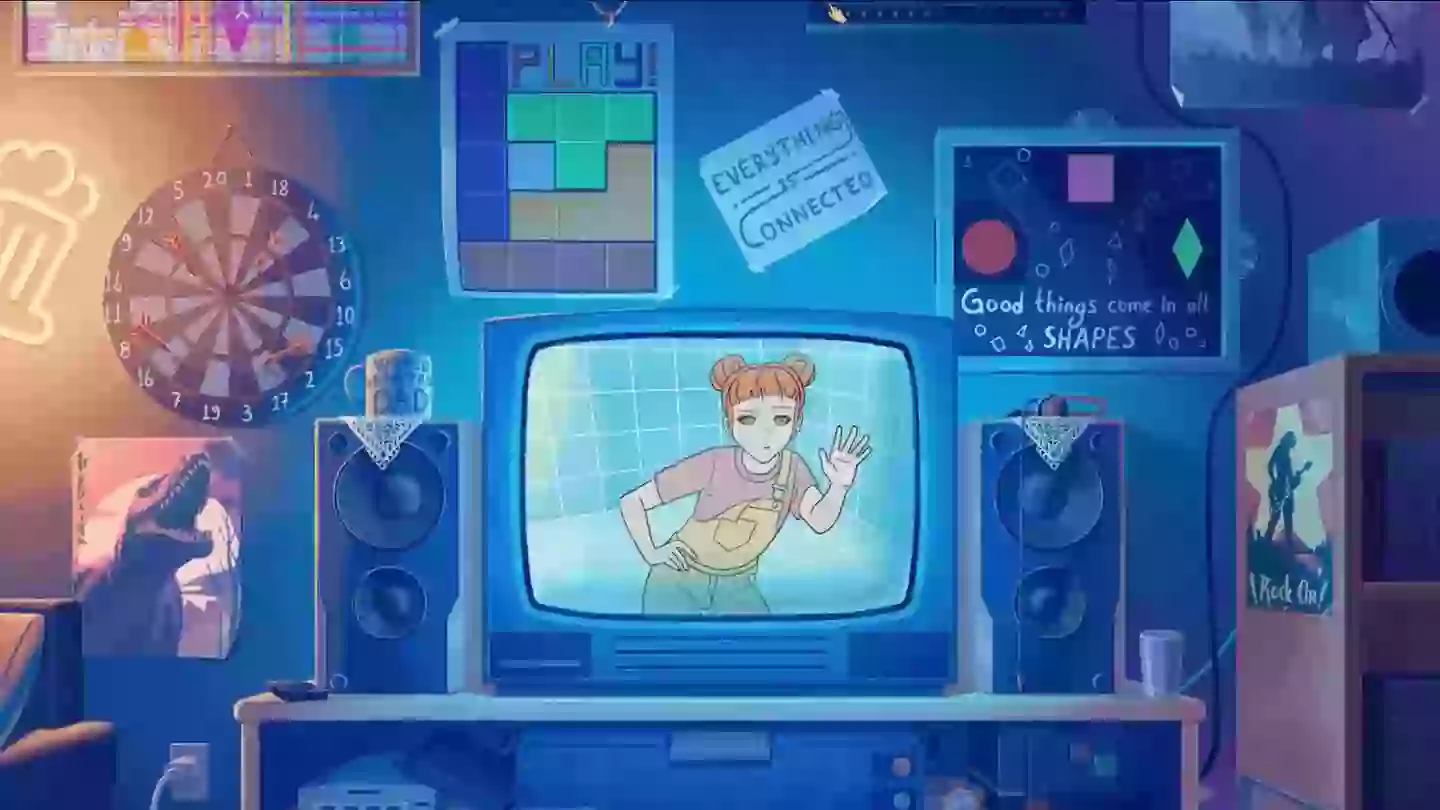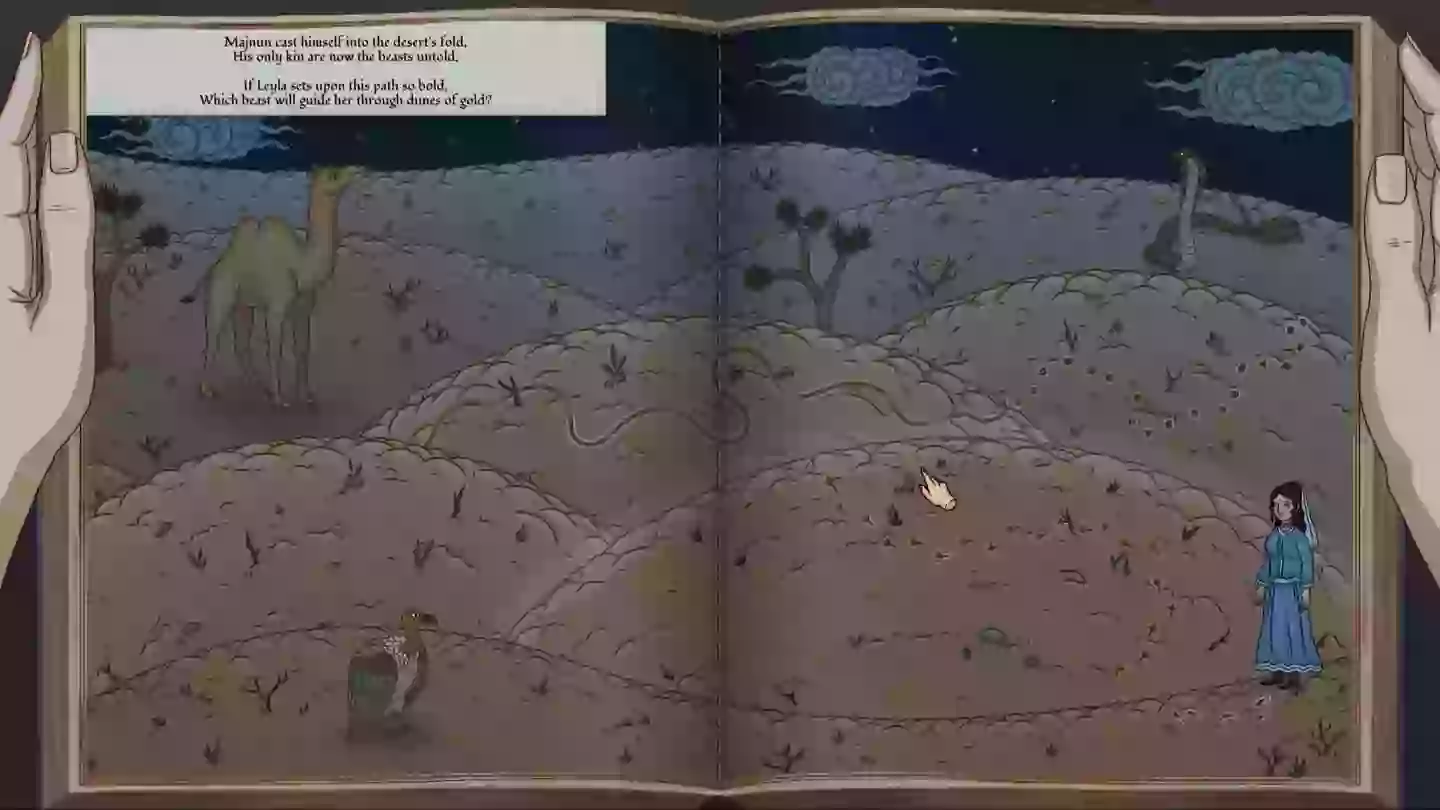
Leila falls into, if you ask me, one of my favourite categories of games; it’s a title that wasn’t at all on my radar until it stumbled into my inbox, and yet I’m so glad it’s something I’ve experienced. It’s not a perfect game by any means, but Leila offers much that is so exceptionally put together and beautifully considered.
Developed by Ubik Studios, Leila is part point-and-click game, part narrative puzzler. It’s essentially a slice-of-life experience. Leila, a mother, looks back across key moments in her life across the game’s four chapters, all of which feature puzzles that allow the player to delve further into and gain a better understanding of these memories. It’s with all of this in mind that you shouldn’t expect any major twists and turns; Leila’s narrative is understated and that may likely put off the casual gamer. But for the sentimental and empathic amongst us, there’s something really beautiful to be experienced here.
Leila reflects on the boyfriend who cast her aside, as well as her struggle to accept the reflection she sees in the mirror. There’s a segment exploring the mundanity of adult life, something that for Leila, like many, brings forth low feelings of isolation. Like life itself though, Leila’s tale isn’t one purely of doom and gloom. It’s through the confronting of these painful memories that Leila is able to see the joy and light in her life. It’s an experience of self discovery for her, and I daren’t say it might be one for the player too; so many of these emotions are universally felt.
Advert
You can take a look at Leila in action below.
Perhaps one of my favourite elements of Leila is just how thoughtfully put together its puzzles are. I’ve played games of this variety before and so often it feels as if someone’s thought, “We need some gameplay,” and decided to chuck in a couple of vaguely related puzzles. That’s not at all the case here; the puzzles are very closely tied to what Leila is experiencing.
In one section, Leila reads a book to her child - with the main character, Leila, being who she’s named after. It’s somewhat of a Romeo and Juliet-esque tale. A duo meet, their entanglement sets the town ablaze with whispers. The male character is cast out into the desert, with Leila setting out on a journey to reunite with her true love. As the player though, you don’t simply read the book. You’ll have to alter what you see on the page to bring the riddle-like prose to life, figuring out the correct trail of whispers or correctly charting ‘book’ Leila’s journey through the desert.
Advert
And this is all the more poignant because the reading of this story comes at a time where the ‘real’ Leila is incredibly down in the dumps about the idea of not living up to her namesake. Her husband isn’t pulling his weight, she’s not an exceptional somebody defying the odds. There’s a powerful dichotomy in bringing such a hopeful story to life, through your solving of the game’s puzzles, when they’re set against the backdrop of something that’s much more melancholy in nature.

Elsewhere, the gameplay is more point-and-click based but again, never for the sake of it. Leila won’t task you with playing a glorified game of Where’s Wally?, which is why I really cannot heap enough praise on the gameplay designers. For example, in one chapter, the player is tasked with essentially cleaning Leila’s house via a number of point-and-click activities. You may need to gather the laundry, or locate and waft about the vacuum cleaner. The first time you do so, you’re experiencing the facade Leila creates. Everything is perfect and sunny and joyful, it’s the life she wishes she had.
In the second iteration, you’re faced with reality where, fair to say, Leila is struggling with her emotions. While in the first iteration, I could freely drag the laundry into the basket, in the latter, there was a purposeful lag between the cursor and the laundry item, forcing it to trail behind me. I was quite astounded by how something so simple could really put into perspective how everyday tasks may feel for someone struggling with depression, or similar feelings. This game may be bite-sized, but it uses its three to four hour runtime to deliver a powerful experience.
Advert
I will say, there are explorations of self-harm and gore in one chapter but players are given the option to avoid this completely. If they choose to do so, a summary of the chapter will be provided which omits those aforementioned topics. It’s a nice touch, as I really feel this is a game that should be experienced by as many as possible. And I do want to bring home that there’s plenty of joy to be found in Leila. As she herself comes to realise, growing up is gaining the experience to know which memories to hold onto and which to let go of; a perfect summary of what this game is about.

It would be remiss for me not to mention the game’s art style. Leila utilises hand-drawn 2D graphics and it’s easily one of the most beautiful games I’ve played in a long time. You can tell that the developers poured their heart and souls into this one, and it shines through. The 2D animation takes on a lo-fi aesthetic, something many of us will be familiar with if you ever venture over to YouTube for study / work music.
Leila is a game I fear not enough people will hear about, so I’m taking it upon myself to share the good word. It’s not as long as I’d like and its slice-of-life storytelling isn’t going to suit everybody but that aside, it offers such an incredible examination of not just the female experience, but the human experience. Leila deals with life’s messy emotions and feelings, ones that very few people actually discuss. It brings an emotional truth to video gaming that you simply won’t find in the AAA space. It’s challenging but through confrontation, Leila unearths liberation and happiness; I sense players will do the same.
Advert
Pros: Powerful emotional journey, well considered puzzles that tie in with the storytelling
Cons: On the short side, the slice-of-life narrative may not be for everyone
For fans of: Paper Trail, Venba, Journey, Botany Manor
8/10: Excellent
Leila launches on 7 April on Steam and on 17 April on PlayStation 4, PlayStation 5 (version tested), Nintendo Switch, Xbox One, and Xbox Series X/S. A review code was provided by the publisher. Read a guide to our review scores here.
Topics: PlayStation, PlayStation 5, Xbox, Nintendo Switch, PC, Steam, Reviews, Indie Games